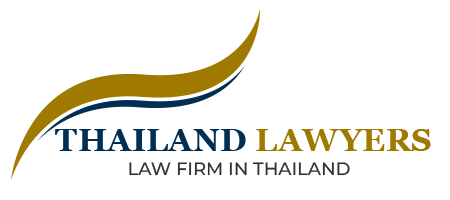The Thailand Long-Term Resident (LTR) Visa is a relatively new visa option designed to attract high-net-worth individuals, retirees, professionals, and investors to settle in Thailand. Launched in September 2022, it offers a 10-year visa with a range of privileges aimed at enhancing Thailand’s appeal as a regional hub for business, retirement, and long-term living. This article will explore the LTR visa categories, eligibility criteria, benefits, and practical considerations for those interested in applying.
1. Categories of Long-Term Resident Visa
The LTR visa is divided into five distinct categories, each catering to specific groups of foreigners:
- Wealthy Global Citizens: Aimed at individuals with high wealth and significant investments. These applicants must hold assets exceeding USD 1 million and invest a minimum of USD 500,000 in government bonds, real estate, or foreign direct investment in Thailand.
- Wealthy Pensioners: This category targets retirees aged 50 and above who wish to live in Thailand. Applicants must show a minimum pension income of USD 80,000 over the past two years or a combination of income and assets exceeding this threshold.
- Work-from-Thailand Professionals: Tailored for remote workers and digital nomads employed by overseas companies. Applicants must demonstrate income above USD 80,000 annually for the past two years, or above USD 40,000 if holding a Master’s degree or equivalent qualifications.
- Highly-Skilled Professionals: This category is designed to attract experts in fields like technology, healthcare, and infrastructure. Applicants must have an annual income of at least USD 80,000 or USD 40,000 for those holding advanced degrees, and they must be employed by companies in target industries.
- Dependents of LTR Visa Holders: Spouses and children (under 20 years old) of LTR visa holders are eligible to apply under this category, benefiting from similar privileges.
2. Eligibility Criteria
The eligibility requirements for the Thailand LTR visa are stringent and vary depending on the category. Here’s an overview:
- Financial Requirements: All categories except for dependents require proof of financial stability. For wealthy global citizens and pensioners, this includes documented evidence of investments or retirement income, while professionals must demonstrate income from foreign or Thai companies.
- Health Insurance: Applicants must have health insurance covering medical expenses of at least USD 50,000, valid for the duration of their stay. This is particularly important for pensioners and older applicants who may require medical care in Thailand.
- Employment or Investment: Categories for professionals and digital nomads require proof of employment with either a foreign company or a Thai company in a targeted sector. Applicants in these categories must provide contracts or investment documents to demonstrate eligibility.
- Criminal Background Check: All applicants must undergo a background check to ensure no criminal record, which is a standard part of visa applications in Thailand.
3. Benefits of the Long-Term Resident Visa
The LTR visa offers several unique benefits that make it an attractive option for foreigners looking to live in Thailand long-term:
- 10-Year Visa: The LTR visa provides a 10-year validity, compared to typical long-term visas that require annual renewals.
- Work Permit: LTR visa holders in the professional categories can apply for a work permit, allowing them to legally work in Thailand without needing a separate visa.
- Fast-Track Services: Visa holders gain access to fast-track services at airports in Thailand, making travel more convenient.
- Tax Incentives: One of the most appealing features for professionals and investors is the tax incentives. Foreign-sourced income is exempt from Thai taxation, and highly-skilled professionals can benefit from a reduced personal income tax rate of 17%.
- Permanent Resident Pathway: While the LTR visa does not directly lead to permanent residency (PR), holders can still apply for PR after meeting certain conditions, such as maintaining the visa for several years.
4. Application Process
The application process for the LTR visa is relatively straightforward but requires careful documentation. Here’s a step-by-step overview:
- Step 1: Pre-Approval
Applicants begin the process by submitting their documents through the Thailand Board of Investment (BOI) online platform. Required documents include proof of income, health insurance, and background checks. - Step 2: Immigration Submission
Once pre-approved by the BOI, applicants must submit their application in person to Thai immigration. They will need to pay the visa fee (currently set at 50,000 THB), which covers the entire 10-year period. - Step 3: Work Permit Application (if applicable)
Professionals who wish to work in Thailand must apply for a digital work permit through the BOI. This process typically takes place after receiving the LTR visa. - Step 4: Document Verification and Issuance
Once all documents are verified and the visa is issued, holders are granted the right to live in Thailand for 10 years, with various re-entry and fast-track privileges.
5. Practical Considerations for LTR Visa Holders
While the LTR visa offers numerous benefits, there are practical considerations to keep in mind:
- Renewal and Reporting: Although the LTR visa is valid for 10 years, holders are required to report their address to Thai immigration every 90 days, a standard requirement for all long-term visas.
- Tax Implications: For wealthy pensioners or global citizens, it’s important to understand the tax obligations in their home country while residing in Thailand. Though Thailand offers tax benefits, holders should seek advice on double-taxation agreements to avoid complications.
- Healthcare Access: Having proper health insurance is essential, as healthcare costs can vary depending on the location and hospital chosen. Thailand has a robust private healthcare system, but international coverage is often necessary for more complex medical treatments.
6. Comparing LTR Visa with Other Visa Types
The LTR visa offers distinct advantages over traditional long-term visas like the Non-Immigrant Visa (O-A) for retirees or the Non-Immigrant Visa (B) for business professionals:
- Longer Validity: With a 10-year validity, the LTR visa greatly reduces the bureaucratic burden compared to annual visa renewals.
- More Flexibility: The visa’s ability to combine work and residence rights makes it an ideal choice for high-net-worth individuals or professionals looking to settle in Thailand.
- Access to Thai Citizenship: Although not a direct pathway, maintaining an LTR visa for several years may make it easier to apply for permanent residency or Thai citizenship.
7. Conclusion
The Thailand Long-Term Resident Visa is a game-changer for expatriates, professionals, retirees, and high-net-worth individuals seeking a stable, long-term stay in Thailand. Its attractive tax incentives, fast-track immigration services, and the ability to work without constant visa renewals make it a highly desirable option for those looking to integrate into Thai society. However, applicants must be prepared to meet the strict eligibility criteria and carefully manage their financial and health insurance obligations.
Whether you are a retiree wanting a tropical lifestyle, a digital nomad working from Thailand’s beautiful locales, or a professional seeking career opportunities, the LTR visa provides a flexible and secure way to make Thailand your home for the long haul.

